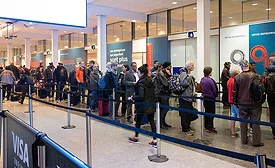Home » national security
Articles Tagged with ''national security''
Joshua Dean: Securing the People, Securing San Antonio's Water Future
A Security 500 Thought Leader Profile
November 1, 2017
Sign-up to receive top management & result-driven techniques in the industry.
Join over 20,000+ industry leaders who receive our premium content.
SIGN UP TODAY!Copyright ©2026. All Rights Reserved BNP Media.
Design, CMS, Hosting & Web Development :: ePublishing







